Ray Comfort's Blog, page 38
March 20, 2012
Darkness fell over the "City of Light."
The month of June was an
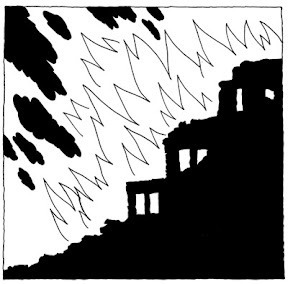 unspeakably depressing one for France and the two Americans. On the 3rd of the month two hundred German planes dropped a total of eleven hundred bombs on Paris, killing many. Then, to their horror, they listened to reports that, as German troops fought their way across Northern France, they trapped 340, 000 Allied troops on the beaches of Dunkirk. The ruthless and confident Germans forced back the battle‑weary British, French and Belgian divisions to a point where it looked like they would be annihilated.
unspeakably depressing one for France and the two Americans. On the 3rd of the month two hundred German planes dropped a total of eleven hundred bombs on Paris, killing many. Then, to their horror, they listened to reports that, as German troops fought their way across Northern France, they trapped 340, 000 Allied troops on the beaches of Dunkirk. The ruthless and confident Germans forced back the battle‑weary British, French and Belgian divisions to a point where it looked like they would be annihilated.When the French and British troops had rushed to the defense of Belgium and Holland and the countries surrendered, it exposed their left flank. Hitler's forces took advantage of this, and stormed through the gaping hole trapping the Allies. Although around 130,000 died, the Royal Air Force fought an air battle with the Luftwaffe, which gave time for an evacuation that was hailed as the "miracle of Dunkirk." In nine days, a massive allied effort pulled 340,000 grateful troops back across the channel. It was a bittersweet victory.
That night Jerry tuned into the BBC, and once again was stirred by the words of Winston Churchill, who despite the evacuation vowed,
"We shall fight on the seas and oceans; we shall fight, with growing confidence and strength, in the air. We shall defend our island, whatever the cost may be. We shall fight on the beaches, we shall fight on the landing grounds, we shall fight in the fields and in the streets, we shall fight in the hills; we shall never surrender."
All too familiar tears rolled down Jerry's cheeks, partly because of such soul‑stirring words, but also because he felt fearful for France. His fears were justified. What was considered unthinkable a few years earlier, happened.
Darkness fell over the "City of Light." Hitler invaded Paris. It took a mere ten days for the Germans to take Paris after they began the Battle of France.
The tears continued to flow as Jerry stood under the trees and watched the German armored cars sweep down the Champs Elysees. His heart almost broke when his eyes fixed upon a sign plastered on the Eiffel Tower: "Deutschland siegt auf Allen Fronten." He didn't need anyone to help with the translation: "Germany conquers on all fronts."
To be continued.
For Evangelism Resources, please visit LivingWaters.com.
Published on March 20, 2012 05:18
March 19, 2012
Chapter Five: The City of Light
It was now May, 1940. Hitler was attacking Holland and Belgium
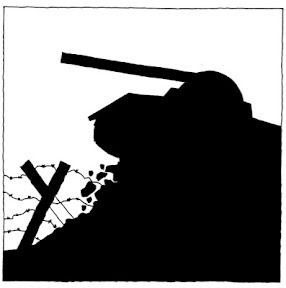 with his "Blitzkrieg." Jerry huddled close to an old wireless and listened to the BBC report that hundreds of Nazi planes had swooped over their cities, dropping German parachutists often dressed in Dutch military uniforms. Holland's queen issued a statement saying: "After our country, with scrupulous conscientiousness had observed strict neutrality . . . Germany made a sudden attack on our territory without any warning."
with his "Blitzkrieg." Jerry huddled close to an old wireless and listened to the BBC report that hundreds of Nazi planes had swooped over their cities, dropping German parachutists often dressed in Dutch military uniforms. Holland's queen issued a statement saying: "After our country, with scrupulous conscientiousness had observed strict neutrality . . . Germany made a sudden attack on our territory without any warning."The Belgium Prime Minister declared "a state of alarm," and hoped that Britain and France would come to their aid. The Germans said their reason for attacking both countries was because they believed that Britain and France were about to use them as stepping stones to invade Germany. The German Foreign Minister stated:
"The Allies were preparing an onslaught on Germany which the Reich could not tolerate. In the life and death struggle thrust upon the German people, the Government does not intend to await an attack by Britain and France."
It took only two weeks for Germany to conquer Holland and Belgium, taking them right to the English Channel, making the Allies very nervous. They were fully aware what was next on Hitler's agenda.
France's Premier Paul Reynaud was grieved at the loss of the two countries, saying that their surrender made the situation "dark" and "grave."
The next day Jerry heard that President Roosevelt, in an effort to prepare for the worst-‑direct involvement in the war, announced plans to train 50,000 war pilots. Congress supported him, and passed legislation backing his proposal.
To be continued.
For Evangelism Resources, please visit LivingWaters.com.
Published on March 19, 2012 06:30
March 16, 2012
Resistance
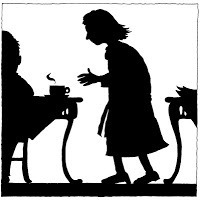
It was only after getting a job serving tables in a small outdoor cafe that Lilian finally made contact with the underground, through a man named Marc. As she cleared a table one afternoon, without looking up from a newspaper he was reading, he directed her attention to a man in his early 30's who was sitting at a table drinking coffee. Marc had heard through reliable sources that this man had connections with the Resistance.
Lilian scribbled "Long live France . . . I must speak with you" in French on a piece of paper. She put it on the saucer of a cup of coffee and took it to the man's table. Ten minutes later, she returned to clear the table, lifted the cup and saw what she had prayed she would see. There was another small piece of paper. In the kitchen, she carefully unfolded it and read the words: "124 Bordeaux 7: 00 p. m. Alone."
Lilian's heart raced as she knocked on the door of 124 Bordeaux. When it opened, a woman smiled and asked in French,
"Did you come alone?" Inside, two men and another woman were playing cards and took no notice as Lilian stepped inside and shut the door.
The woman said,
"My name is Marian, what would you like me to do for you?"
"I want to join the Resistance . . . can you help me?"
Marian gave a small laugh and said,
"Now why would an American girl, who can't yet be out of her teenage years, want to join the French Resistance?"
"Because the Nazis killed my father and put my grandmother in Auschwitz."
One of the men playing the card game, tossed a card onto the center of the table and without looking around said,
"How do we know you are speaking the truth?"
Lilian said, "You don't."
He smiled, turned and looking at her said,
"Why then should we trust you?"
The woman who let her in whispered loud enough for all to hear,
"I trust her."
The man then said,
"We will contact you at your work," then he nodded to the woman to see Lilian to the door. The meeting only lasted about two minutes, but it sent Lilian's heart racing, this time with excitement.
That night Lilian thanked God for the meeting, and then opened a Bible she had brought with her from Poland. It was a Bible her father started reading while they waited and prayed that the British and the French would reach them before the Germans. She began reading, something she would do every night from then on.
The next day she lifted a thousand coffee cups, looking for a note. Each time she became more and more disappointed.
A week passed and still no one contacted her. It was evident that they didn't trust her. Just when she had resigned herself to the fact that there would be no communication, she saw a small folded note as she lifted a cup. On it she read the words:
"If you would like to join our card game, come to 73 La Havre at 7:30 tonight. We only need one player so come alone." Lilian put the note into her pocket, then whispered,
"Thank you, Lord."
To be continued.
For Evangelism Resources, please visit LivingWaters.com.
Published on March 16, 2012 06:15
March 15, 2012
Chapter Four: Blood, Toil and Tears
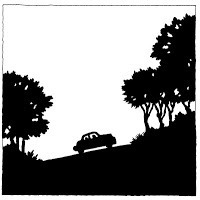 It was three weeks since Samuel had been killed, and in that short time Jerry had matured from a boy into a man. He had to. He needed to be strong to lead his grieving mother and sister, and he needed to be brave. During the three weeks, they took turns at driving Joseph's car south into Hungary, west through occupied Austria, and then through into France. Fortunately for them America was still neutral, and their documents got them through six tightly secured border patrols. While their hearts skipped with delight at being let through, many times they saw the pathetic sight of Jewish men, women and children being rounded up like cattle, both in Hungary and in Austria.
It was three weeks since Samuel had been killed, and in that short time Jerry had matured from a boy into a man. He had to. He needed to be strong to lead his grieving mother and sister, and he needed to be brave. During the three weeks, they took turns at driving Joseph's car south into Hungary, west through occupied Austria, and then through into France. Fortunately for them America was still neutral, and their documents got them through six tightly secured border patrols. While their hearts skipped with delight at being let through, many times they saw the pathetic sight of Jewish men, women and children being rounded up like cattle, both in Hungary and in Austria.In France, Jerry kept a close eye on what news he could find. He heard that six people had been killed in Munich on November 8, 1939, when a bomb exploded in a packed hall of Nazi veterans. The bomb had been intended for Hitler, but he had left the hall 15 minutes earlier than was expected. In Prague, on November 24, the Gestapo executed 120 students they accused of anti‑Nazi plotting.
Jerry felt frustrated and disappointed that the U.S. hadn't joined the war. Back in the States a group of "isolationists" formed what they called the America First Committee. This group had among its members, high-profile figures such as the famed Charles Lindbergh, and Robert McCormick, the publisher of the Chicago Tribune, as well as a few senators. Their powerful voices opposed U.S. intervention in what was referred to as "the European war," yet Jerry knew that if the Western nations banded together, only then could they defeat fascism. It was this knowledge, and the first speech by Britain's new Prime Minister that made Jerry want to stay in France and do all he could to stop the onslaught of Nazism. As he tuned into the BBC, he heard the distinctive sound of Winston Churchill say,
"I have nothing to offer, but blood, toil, tears and sweat." His voice moved something deep in Jerry's heart. When he decided to wait in Paris and join the French resistance, he thought that his mother would protest his decision, but she understood. After some discussion, both Jerry and Lilian decided that it would be wise for their mother to return to Texas and take over the farm. They would stay in Paris for a while then join her after the war.
The French were not as welcoming as Jerry and Lilian had hoped. Many were bitter that the United States had stayed out of the conflict. Despite attempts they made to contact the Resistance, they were futile. As far as the French were concerned, any American who had just come from living in Germany shouldn't be trusted. Jerry couldn't blame them for having such an attitude. Paris crawled with both Germans and Frenchmen who would betray the Resistance for a price.
To be continued.
For Evangelism Resources, please visit LivingWaters.com.
Published on March 15, 2012 06:15
March 14, 2012
Merciless
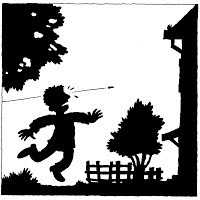 It was morning before he regained consciousness. The distant sounds of war had become louder as it neared the small home. However, there were no more firing squads in the area, probably because there were no more men in the vicinity who were left alive. As Jerry opened his eyes, the first words that came from his lips were,
It was morning before he regained consciousness. The distant sounds of war had become louder as it neared the small home. However, there were no more firing squads in the area, probably because there were no more men in the vicinity who were left alive. As Jerry opened his eyes, the first words that came from his lips were,"Dad . . . is Dad O.K.?" His mother seemed to look right through him as she said,
"Your father's dead."
The first shot that came as they ran from the home the previous morning put Samuel onto the ground, as it penetrated his leg. The next two shots Jerry heard a moment later, went through the back of his father's head as the Nazi soldiers mercilessly ignored his pleas that he was an American citizen. Esther, Lilian and his grandmother stood in the doorway in unspeakable horror and witnessed the incident. To the soldiers, Samuel was just another raving Jew, and Jews were to be exterminated. Some went quietly, some protested.
The women had also seen Jerry run around the corner and had resigned themselves to the fact that he was also dead. They were more than astonished to see him show up at night with a gun in his hand, and then kill two Nazis.
They then explained the events that had taken place that day. Joseph had been dragged from his bedroom and shot with six other men right in front of the house. Their bodies were later picked up by a truck and taken away. Around mid-morning, two members of the Gestapo pounded on the door and demanded to see each of the women's documents. When they saw that Samuel's mother was a Jew, they arrested her on the spot and said that she was to be taken to Auschwitz under the charge of Hitler's butcher, Adolf Eichmann.
When Jerry had gained his composure, he asked where the bodies of the soldiers were. In the blackness of the night, the two women had together loaded them into their car and dumped them about a mile from the home. Jerry heaved a deep sigh of relief, then reached around to clutch his aching shoulder. He looked down at a clean bandage and said, "You two have done a good job."
To be continued.
For Evangelism Resources, please visit LivingWaters.com.
Published on March 14, 2012 06:15
March 13, 2012
Rape!
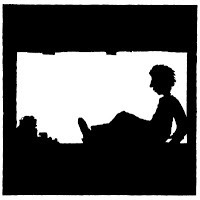 Ten long, freezing, and painful hours passed beneath the floor of the bakery. The bleeding from Jerry's two wounds had stopped, but not until after he had lost enough blood to make him feel dizzy and weak. But it was now dark and the sound of war had settled down a little. The firing squads had stopped. During the day they could be heard about every ten minutes.
Ten long, freezing, and painful hours passed beneath the floor of the bakery. The bleeding from Jerry's two wounds had stopped, but not until after he had lost enough blood to make him feel dizzy and weak. But it was now dark and the sound of war had settled down a little. The firing squads had stopped. During the day they could be heard about every ten minutes.It took some time to maneuver his sick body back through the tiny hole into which he had crawled. As he stood to his feet for the first time in ten hours, his head spun and he stumbled into the wooden boxes beside him, making them crash noisily to the ground. This sent a wave of fear through his mind.
Three minutes later, he stood in the darkness beside the back window of his house. The curtains were drawn but he could hear male German voices coming from the living room. There was a tiny gap in the curtain, but he was fearful to lean across to look in, in case he was seen. Were his mother and his sister okay? Did his father and Joseph escape? Whose voices could he hear?
His concern for his family partially overcame his fears and he slowly leaned across and peered into the home. To his relief, two soldiers stood with their backs to the window. From what he could see through the small window, they were officers of the Third Reich. His mother and sister were huddled together in a corner. Thank God they were alive. The officers laughed as they drank their foaming mugs of beer; then one reached into his pocket and pulled out a coin and tossed it into the air. Jerry's heart sank with pity as he saw the fear in the eyes of both his mother and sister. One of the officers then walked across to his sister and lifted her from the floor. A word flashed across the boy's mind, Rape! He mouthed,
"Dear God no! Please don't let this happen."
Jerry felt a wave of an emotion that he had never felt before. It was anger that these animals would rape his beloved mother and sister. Rage seemed to overcome his fears and clear his mind.
It was then that he remembered a gun his father had smuggled from the U.S. It was a loaded handgun hidden under a loose floorboard in the bathroom. Quickly he made his way to the bathroom window and pried it open.
For the first time in ten hours he wasn't aware of pain in his arm as a reserve of adrenaline pumped through his body. He quietly slid down onto the floor, dropped to his knees in the darkness, lifted the loose floorboard and felt for the gun. For a second he thought it was gone, but then his hand touched something very cold. He took hold of the cold steel and held it firmly in his hand. Only once before had his father let him touch it, and that was to show him how to move the safety clip, if the time ever came that he needed to.
In the semi-darkness, he carefully moved the clip with his left hand and held the gun tightly in his right. He then quietly opened the bathroom door, entered the dark hallway and deliberately stopped for a moment and calmed his thoughts.
As he stood in the hallway, he could hear the pathetic crying‑sound of his sister coming from one of the bedrooms. It made him grit his teeth in outrage. He gently turned the familiar handle and pushed open the door to see the dark figure of a man pressing his terrified sister against the wall. He had hold of both of her wrists and was forcing himself upon her. The officer looked for a moment at the change of expression on Lilian's face as she saw Jerry. He then turned his head and mumbled something in German, thinking that it was the other officer. But when he saw Jerry's figure standing with a gun, terror filled his eyes He dropped Lilian and scrambled for his revolver.
Jerry fired two shots into his chest, then ran to his sister and pulled her up from the floor where she had been dropped. As he did so, he heard the hallway door open and a voice say in German, "Uncooperative huh?", as he entered the bedroom. Jerry took careful aim at the silhouette and fired! One pierced the man's upper chest, and as he crumpled to the ground, he put another bullet into his back.
It was then that Jerry collapsed in exhaustion.
To be continued.
For Evangelism Resources, please visit LivingWaters.com.
Published on March 13, 2012 06:15
March 12, 2012
Just the men
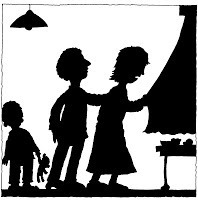 Almost every part of Germany's bureaucracy had a hand in the killing-process. Churches and the Interior Ministry produced necessary birth records identifying those who were Jewish. It seems that the whole country unified to make the procedure work like a well-oiled machine:
Almost every part of Germany's bureaucracy had a hand in the killing-process. Churches and the Interior Ministry produced necessary birth records identifying those who were Jewish. It seems that the whole country unified to make the procedure work like a well-oiled machine:"The Post Office delivered the deportation and denaturalization orders; the Finance Ministry confiscated Jewish property; German firms fired Jewish workers and disenfranchised Jewish stockholders; the universities refused to admit Jews, denied degrees to those already studying, and fired Jewish academics; government transport offices arranged the trains for deportation to the camps; German pharmaceutical companies tested drugs on camp prisoners; companies bid for the contracts to build the crematoria; detailed lists of victims were drawn up using the Dehomag (IBM Germany) company's punch card machines, producing meticulous records of the killings. As prisoners entered the death camps, they were made to surrender all personal property, which was carefully catalogued and tagged before being sent to Germany to be reused or recycled."
There was a constant and terrifying sound of war. Echoes of thunder came closer and closer to their home. On the third day, very early in the morning, Samuel's mother awoke to the sound of shots being fired. She climbed out of her bed and looked out of the small window.
In the semi-darkness she could see soldiers arresting people in the adjacent street and lining them up for questioning. Her eyes squinted as she tried to see if she could recognize any of them. As she did so, she whispered to herself,
"It is just the men . . . " She jumped as she felt a hand on her shoulder and glanced around to see Samuel.
"They're going to question the men." He shook his head and soberly whispered,
"No . . . " His mother looked inquiringly into his deep brown eyes. As she did so, she flinched at the sound of guns being fired in unison and looked back to see about a dozen men fall to the ground. She put her hand to her mouth and said,
"Dear God, they've shot them!"
The noise of Samuel and his mother had been enough to wake Jerry, who was now standing by the door of his bedroom. He had heard their voices earlier, and got up and slipped on some clothes. When he heard the shots, he came out of his room. Samuel ran across, grabbed him by the arm and said,
"They're shooting the men! We've got to hide bef . . ." There was a loud pounding on the door that made their hearts stop in terror. His mother said,
"The back door, quickly!"
Samuel opened the door, pushed his son ahead of him and said,
"Run Jerry! Run for your dear life!"
To be continued.
For Evangelism Resources, please visit LivingWaters.com.
Published on March 12, 2012 06:15
March 9, 2012
Chapter Three: Echoes of Thunder
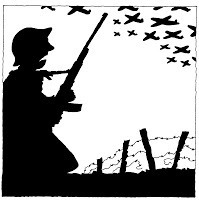 After 21 years of peace, Europe was suddenly thrust into war again. A massive German force of 1.25 million men swept across the Polish border on September 1, 1939. Russian troops invaded from the east and Poland began to fall into the hands of a merciless enemy. Britain and France immediately declared war on Germany, fulfilling their defensive obligations to Poland. The two nations released a communiqué as to why they had invaded: "To bring order to Poland and to help the Polish people confronted with the collapse of their state."
After 21 years of peace, Europe was suddenly thrust into war again. A massive German force of 1.25 million men swept across the Polish border on September 1, 1939. Russian troops invaded from the east and Poland began to fall into the hands of a merciless enemy. Britain and France immediately declared war on Germany, fulfilling their defensive obligations to Poland. The two nations released a communiqué as to why they had invaded: "To bring order to Poland and to help the Polish people confronted with the collapse of their state."Three weeks of nightmarish bombing left Warsaw in devastation. The Nazis called the invasion its Blitzkrieg‑‑a "Lightning War." The name was certainly appropriate. By the end of September 60,000 Poles had been killed by the Nazi invasion, 200,000 more were wounded and 700,000 soldiers were being held in captivity.
Cracow was one of the first cities to be assaulted. Samuel mistakenly thought that the Polish troops would hold back the enemy front, and that Britain would come to their aid. But the truth was that he and his beloved family was now trapped. If they went south they would confront hostile Hungarian troops who were sympathetic to the Nazi cause. Since the invasion, he had no idea where the U.S. stood militarily. If they had entered the conflict, then his U.S. documentation would be a death warrant. If they went East, they would face Russian troops who were as merciless as the Nazis. The Germans had taken Bromberg to the north. The only option was to stay where they were and pray‑‑and pray they did. That night Samuel wept openly, and took his family in his arms and pleaded with God for their safekeeping. Jerry had never seen his dad like this before. Until now he had scoffed at any thought of faith in God.
Samuel's knowledge of Germany's recent history added to his dread. The Nazi's were so coldly systematic…like a disease spreading across a human body. They had persecuted the Jews in stages. He remembered reading in U.S. newspapers how it began well before World War II, with legislation that systematically removed Jews from society. Following Hitler's takeover of power on 30 January 1933, he began his first nation-wide anti-Jewish boycott. Nazis stood outside Jewish shops and companies throughout Germany to intimidate Jews. The boycott wasn't particularly successful. It was declared that it had served its purpose and ended it after one day. He remembered seeing a translation of a boycott poster used in the town of Geisenheim:
"German people's comrades! German housewives! You all know the disgraceful methods that so-called German Jews abroad are using to incite against the German people and Adolf Hitler's national government. If we do not want to give up and sink into deeper misery, we must defend ourselves. We therefore call on you to heed the appeal of our Führer, the German people's chancellor, for a boycott against the Jews and expect the full support of each person in this defensive action. Do not buy from Jewish shops! Do not go to a Jewish doctor! But maintain the strictest discipline. Do not even touch the hair on a Jew's head. The boycott begins Saturday morning at 10:00 a.m. From that moment on, we will watch to ensure that the boycott is strictly followed. He who tries to ignore the boycott will be seen as an enemy of the German people."
The American media said that the boycott had failed and that the Nazis would back off. But they didn't. The Nazis began a concerted effort to change the perception of a Jew. They portrayed Hitler as a savior, equating his "deliverance" of the German people to the exodus from Egypt, while the place of the Jew in other Old Testament stories were changed. A Nazi educational slide set included an image called "David and Goliath." It showed a stereotypically drawn "Jewish" David crouched naked and Neanderthal-like behind a bush. His opponent, the giant Goliath, loomed in Aryan splendor before him. And in one of the most famous speeches of his career, his address of 30 January 1939 to the German Reichstag, Hitler assumed the role of a Hebrew prophet, calling down destruction on a sinful Jewish people. His words echoed a theme common in anti-Jewish Christian literature of the 1930s and 1940s. The Old Testament, some of its defenders argued, was to be salvaged, not because it honored or glorified the Jews, but precisely because its prophets and punishments proved God's displeasure with those "hard-necked" people.
In 1939, they were painted as being "destructive Jews" and likened to those in the time of Christ. They were "the same Jewish criminal people who nailed Christ to the cross!"
In time, Jews were placed in Concentration Camps, in which the prisoners were used as slave labor and were kept until they died of exhaustion or disease. When the Third Reich advanced into other countries of Eastern Europe, they murdered Jews and any political opponents, in mass shootings. The Jews and Romani (Gypsies) were held in overcrowded ghettos, and then packed into freight trains and taken to extermination camps, where, if they survived the journey, most of them (men, women and children) were put to death in gas chambers.
To be continued.
For Evangelism Resources, please visit LivingWaters.com.
Published on March 09, 2012 06:15
March 8, 2012
The cancer spread
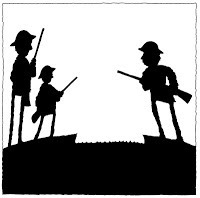 In March of 1939, the cancer spread even further-‑into Prague, the capital of Czechoslovakia. Hitler then divided the country up into several regions, each under the reign of the Third Reich. His entry into the city was not as celebrated as in Austria or Sudetenland. Many jeered at the soldiers and others wept openly as the Swastika was raised above the buildings. A curfew was immediately put into effect. Public buildings and banks were taken over by Germans and the Gestapo fanned through the city with lists in their hands.
In March of 1939, the cancer spread even further-‑into Prague, the capital of Czechoslovakia. Hitler then divided the country up into several regions, each under the reign of the Third Reich. His entry into the city was not as celebrated as in Austria or Sudetenland. Many jeered at the soldiers and others wept openly as the Swastika was raised above the buildings. A curfew was immediately put into effect. Public buildings and banks were taken over by Germans and the Gestapo fanned through the city with lists in their hands.Samuel could see what was slowly happening. Hitler was taking Europe with little resistance, and because no blood was seen to be spilled, the world leaders were tolerating his fanaticism.
Samuel however, wasn't the only one that could see the time bomb. He was heartened to read that half a million people lined the streets in New York to watch 20,000 people in a "Stop Hitler" march. Through BBC radio he heard that in England, the British Prime Minister informed Poland:
"Should the Polish Government feel that its independence be threatened to such an extent that it had to resist by force, Poland would find Britain and France on her side."
That stirred the demons in Hitler. He told 100,000 of his followers at a rally that Germany would not allow Britain to initiate their "devilish plan."
It was only the knowledge that Hitler would be kept in line by the threats of Britain and France that kept Samuel in Poland. Had he known how insane the man was and what was about to happen, he would have immediately left the country.
In May of the same year, the Fuhrer signed an alliance with Italy, a union that was referred to as a "Pact of Steel." Then he shocked leaders of Western Europe by signing a non-aggression treaty with the Russians. He then boasted that the treaty thwarted Britain's efforts to form a circle around Germany. That left Poland isolated in Eastern Europe. Britain evacuated thousands of children out of London, and France whisked their children out of Paris and awaited the inevitable.
To be continued.
For Evangelism Resources, please visit LivingWaters.com.
Published on March 08, 2012 06:15
March 6, 2012
The Mystery is...
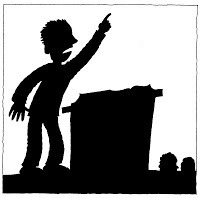 Jerry's curiosity was stirred. His old Sunday school teacher was a walking cure for insomnia, but this man was rousing something deep in his heart. It was as though he had something to tell Jerry, something he was supposed to know.
Jerry's curiosity was stirred. His old Sunday school teacher was a walking cure for insomnia, but this man was rousing something deep in his heart. It was as though he had something to tell Jerry, something he was supposed to know."The Apostle Paul also spoke of this hidden mystery in the Book of Colossians. In his letter to them he wrote, in Chapter I verse 26, 'The mystery which has been hid from ages and from generations,"'
Mr. von Ludendorff looked up again, lifted his eyes above the congregation as though he was seeing something above their heads and said,
"The Scriptures say, 'Awake thou that sleepest, arise from the dead and Christ shall give thee light.' Thank God that He gave 'light' to me as a young man of seventeen and revealed this incredible enigma. What is this most remarkable mystery? What is this amazing secret that God has hidden from all the eyes and ears of humanity?"
Jerry was at a fever pitch. He felt like calling out,
"Tell me what it is! Please tell me!"
The tall preacher seemed to read Jerry's thoughts. He smiled and said,
"I am going to tell you what this mystery is. God hasn't left us in the dark. Please turn with me to . . . " He paused in mid‑sentence and stared at his wife with a look of fear! Everyone knew what had stopped him from finishing his sentence. It was the sound of fast‑moving cars. It was the unmistakable sound of boots; soldiers' boots. Mr. von Ludendorff closed his eyes and whispered,
"Dear God; please . . . not my children."
Suddenly the door burst open and Nazi soldiers filled the tiny room. They seized a family of four who were wearing yellow stars of David, and thrust them outside. The officer in charge had papers in his hand and he seemed to know exactly who he was looking for. It was strange that they were the only ones arrested.
Jerry felt sick with fear as a member of the Gestapo looked over the family's documents. After glaring at Jerry, his mother and sister, the officer stamped "May 14, 1938‑‑SS" on their papers and spat out that they were to leave and never enter the home again.
The experience so scared Jerry, it was a date he vowed he would never forget: May 14, 1938. They didn't have to be told twice to leave.
They heard that in other parts of Germany the Nazis had entered church meetings and sent the people home, but they thought they were safe in Waldenberg.
At school, Jerry made another friend named Steffen, who wasn't as close to him as Karl. He'd had a different influence on Jerry's life. He was the one with whom he smoked cigarettes in the cramped hideout under the floor of the bakery.
Two days after the incident at church, Steffen banged on the Adamson's door. When it was opened, wide‑eyed and between breaths he sputtered out,
"They've taken away the von Ludendorffs!"
"Who has?" Samuel demanded. The boy looked scared and said,
"The Nazis!"
Samuel knew that as pacifists, the von Ludendorffs had refused to teach their children Nazi ideology. He heard that after the church service had been broken up, there was some sort of court hearing set in motion. The details were in the local newspaper that night under the heading "Enemies of the State." This is what he read:
"Waldenberg: The courts have had parents removed from their children. They deemed two members of a Christian sect called, 'The International Bible Researchers,' Mr. & Mrs. Otto von Ludendorff unfit to be parents of their two children. The court accused them of creating an environment where the children would grow up as enemies of the state. The children were delivered into the state's care. The judge delivered a lengthy statement reading in part, 'The law as a racial and national instrument entrusts German parents with the education of their children only under certain conditions, namely, that they educate them in the fashion that the nation and the state expect.'"
Samuel looked up at Esther. She could see the concern in his eyes. He put the newspaper down and gazed towards the door, then back at her and said,
"We've got to leave this place."
To be continued.
For Evangelism Resources, please visit LivingWaters.com.
Published on March 06, 2012 06:15
Ray Comfort's Blog
- Ray Comfort's profile
- 397 followers
Ray Comfort isn't a Goodreads Author
(yet),
but they
do have a blog,
so here are some recent posts imported from
their feed.



